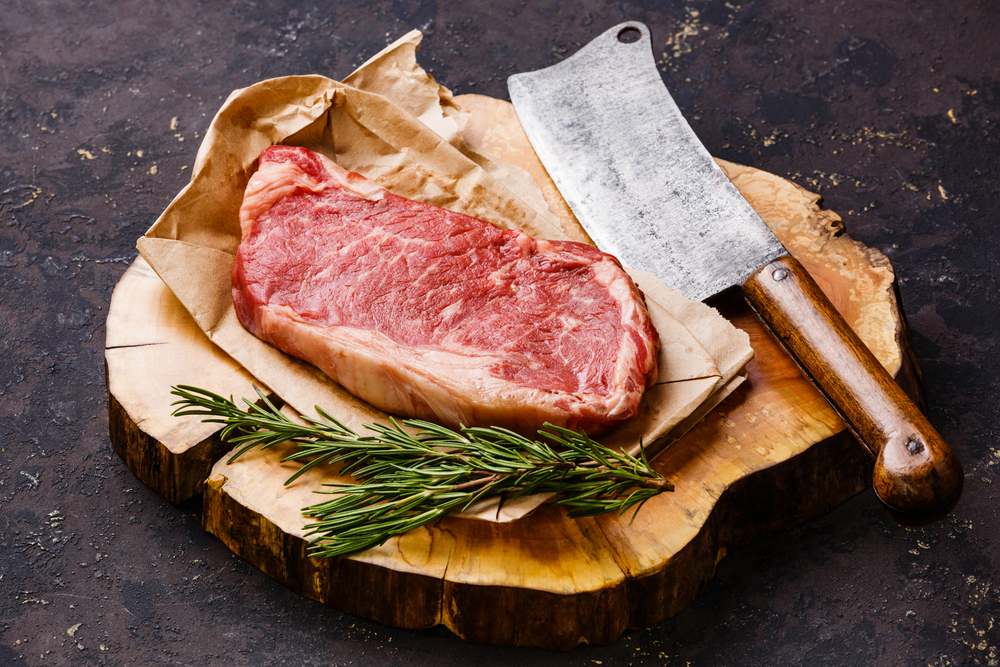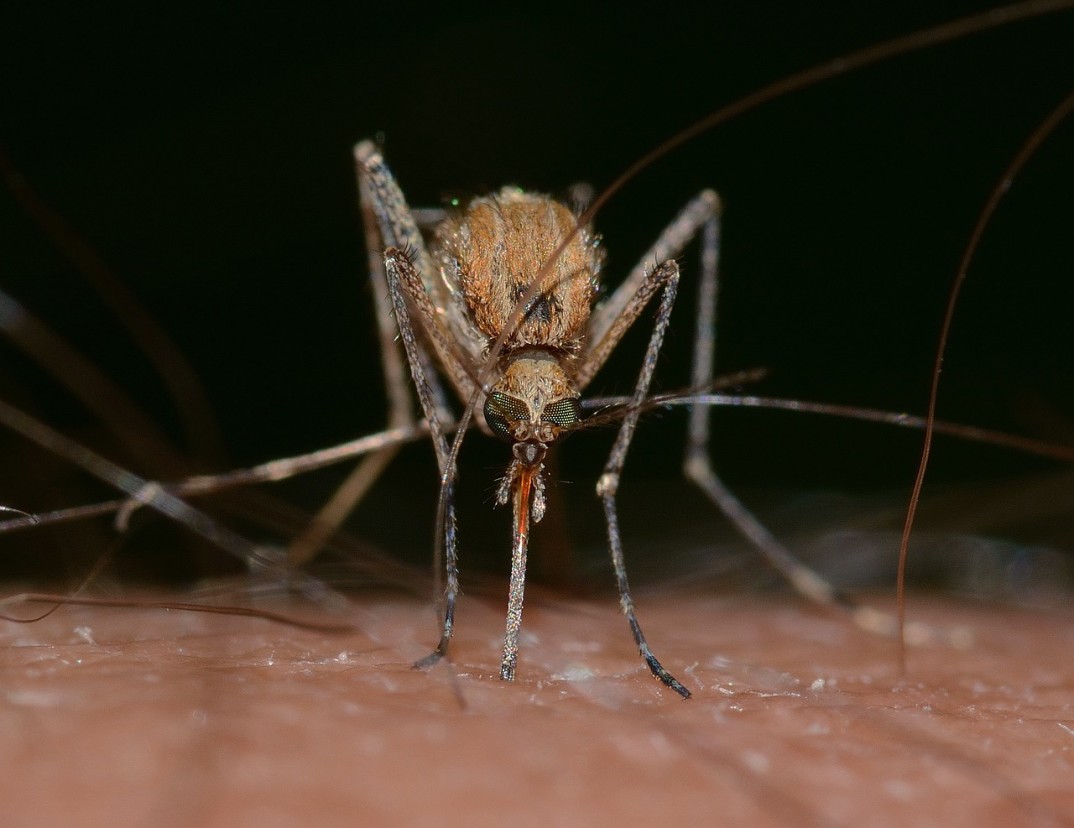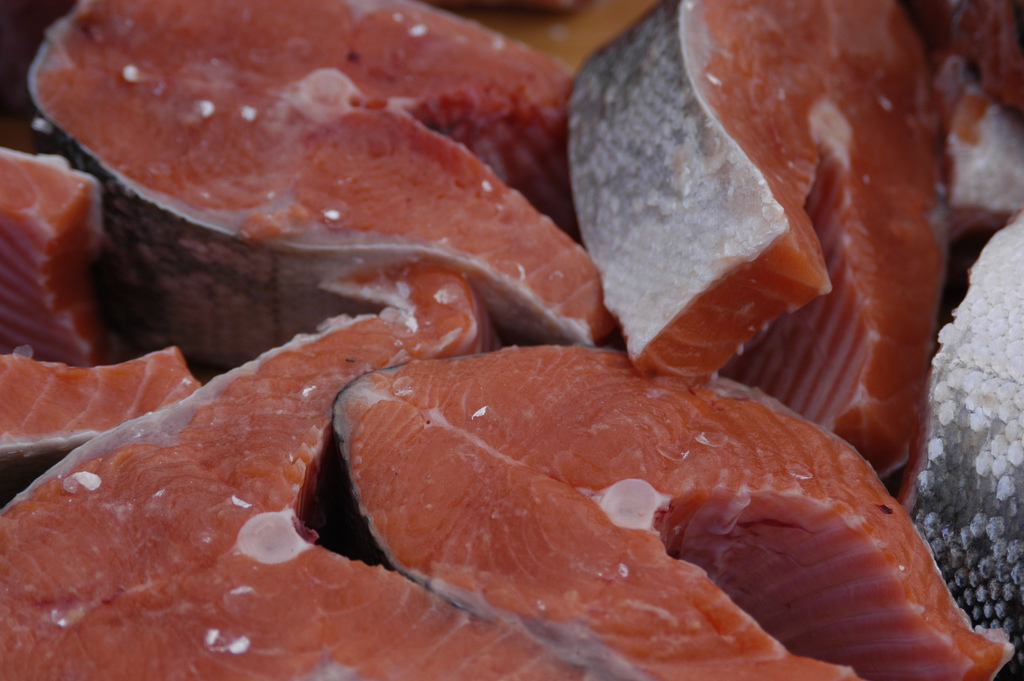This piece is part of an Under Discussion series. To read more about this week’s topic and see more pieces from this series visit Under Discussion: In Vitro Meat.
On the 19th of December, so-called “cultured meat” was listed for the first time on a restaurant menu when the Singaporean eatery 1880 began offering lab-grown chicken from the American company Eat Just. Unlike its standard counterpart, an ingredient like cultured meat (also sometimes called “in vitro” meat) is not harvested from the dead body of an animal raised for slaughter, but is literally grown in a cultured solution much like a petri dish (hence the name “cultured”). While meat-substitutes of various types have become increasingly popular in recent years, this newly-approved product goes one step further: rather than simply aiming to mimic the flavor and texture of meat with plant-based ingredients, cultured meat is biologically (and, by most reports, experientially) identical to “meat” as typically conceived — it is simply not meat grown in the normal way.
For many, cultured meat offers one of the most economical and practical methods for potentially dismantling the ethical scourge that is the industrial factory farming system (responsible as it is for the annual torture and death of billions of chickens, cows, pigs, and more). If cultured meat can be produced economically at a scale sufficient to satisfy popular demands for meat products, then consumers might well be able to stubbornly maintain their meat-eating habits without requiring the suffering and death of so many creatures each year. From a utilitarian perspective, the moral calculation is clear: to maximize pleasure and minimize pain, we seemingly must pull the switch and convert our societal habits from eating meat to eating cultured meat.
But, this leaves open alternative questions about the ethics of eating cultured meat. For example, even if it’s true that cultured meat could offer a viable method for satisfying culinary desires for meat in a way that requires comparably little animal death, that does little to address the problem of having those desires in the first place.
In a recent article, Raja Halwani argues that the Aristotelian virtue of temperance gives us two ways of thinking about how to consider our meat-eating desires: as a matter of desiring the wrong object or as a matter of desiring the right object in the wrong way. As Aristotle himself explains in the Nicomachean Ethics, the temperate person:
“neither enjoys the things that the self-indulgent man enjoys most—but rather dislikes them—nor in general the things that he should not, nor anything of this sort to excess, nor does he feel pain or craving when they are absent, or does so only to a moderate degree, and not more than he should, nor when he should not, and so on” (emphasis added).
While temperance is often considered primarily as a matter of the latter practice — that is, as a restraint on the uncontrolled pursuit of our desires of taste (as exemplified perhaps most infamously in the American Temperance movement) — Aristotle also points out that the temperate person will lack a taste for things that should not be desired.
That is to say, it is one thing to desire something inappropriate while consciously restraining yourself from acting on that desire, while it is quite another to simply not desire the inappropriate thing at all. Imagine, for example, that Moe is a person who (for some reason) desires to murder a series of innocent people in some horrifically gruesome manner. Although he imagines that he would feel great pleasure at committing murder (and, indeed, takes pleasure simply in his imagination of doing so), Moe knows that acting on those murderous desires would be wrong, so he works hard to suppress them and (thankfully) never actually kills anyone. Calvin, in contrast, lacks the desire to murder anyone and, therefore, never commits murder. While it is true that, on one level, Moe and Calvin are the same — neither of them is a murderer — it is also the case that we could say that Calvin is better than Moe in at least some way.
To Aristotle, Moe’s case evidences a kind of continence insofar as Moe has mastered control of his improper desires (because he desires the wrong thing — namely, murder); as Aristotle says, the continent person “knowing that his appetites are bad, refuses on account of his rational principle to follow them.” This means that Moe also demonstrates a lack of what Nicolas Bommarito has described as a kind of “inner virtue” insofar as Moe’s tendency to feel pleasure at even just imaginary murder manifests “morally important cares or concerns” — in this case, they are “morally important” precisely because they are unethical. So, while it is true that we should also recognize Moe’s conscious restraint as proof of separate moral virtues (assuming that his restraint is borne from more than simple self-preservation or a desire to avoid punishment), it is still the case that Moe’s murderous desires are vicious.
What, then, do we make of cultured meat?
Although Halwani does not specifically discuss in vitro meat, he mentions briefly that it “might even be that the temperate person would not desire fake meat processed to look and taste like common forms of meat, such as the Impossible Burger, given that they imitate the kind of meat produced through a cruel history of suffering and death.” Or, like Rossi argued here at the Prindle Post, if cultured meat continues to encourage popular attitudes or perspectives of animals as “edible,” then it might well be serving to perpetuate a less-than-ideal set of desires, even if there are few direct problems with a tasty meal of ethically-produced in vitro meat. Like Halwani points out, temperate individuals might well be morally required to forego various aesthetic pleasures “when they come at the expense of immoral actions,” but the point is that the truly temperate person would not suffer from desires for immoral objects in the first place.
In effect, cultured meat could be promoting a structural sort of continence for our diets that recognizes the moral harms of our current food production methods and so acts to restrain them without doing anything to dissipate the original problematic desires themselves.
Admittedly, I’m taking for granted here that the currently standard system of raising creatures in captivity and subjecting them to immense pain simply for the purpose of consuming their flesh is a moral abomination, regardless of how tasty that flesh might be. If cultured meat offers the most realistic opportunity to prevent widespread nonhuman animal suffering, then that alone is sufficient reason to explore its viability. But the implications of our diet for our character (and what we care about) is also important to consider, even once creaturely suffering is diminished.
In short: cultured meat might indeed do well to prevent future bloodshed, but it cannot, on its own, establish a robustly virtuous culture that lacks the desire for the products of bloodshed.






